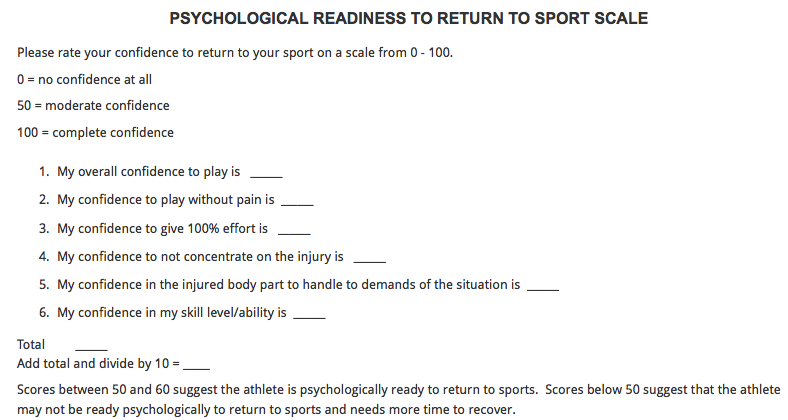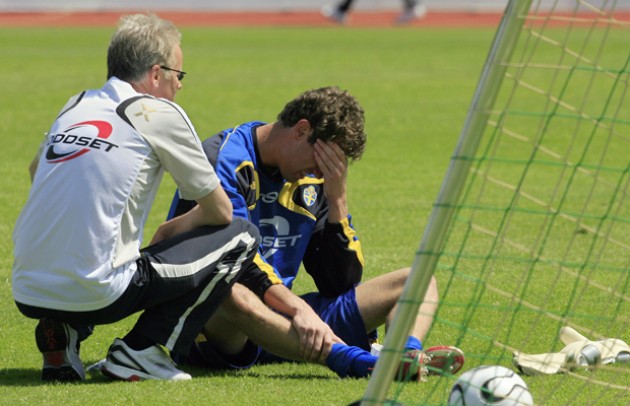Before an athlete can return to play their psychological readiness to return must be examined. Physical recovery is vital and must occur before an athlete returns to play, but if they are not psychologically ready then they should not return as this can lead to re-injury or further injury.
Athlete’s returning from injury, especially long term injury, such as a knee reconstruction may feel anxious about returning to play. If an athlete is not confident in their bodies ability to manage competition they will shield the injured side to protect it. This causes poor technique, and can lead to injury somewhere else. Furthermore, a lack of confidence from the athlete will diminish their performance, and in contact sports can make them hold back from a tackle, which can lead to injury.
However, some athletes are overconfident and eager to return to play. This can occur before they are ready to return and places the athlete at greater risk of re-injury. Care must be taken and proper professionals used to determine the psychological readiness of the athlete.
An athlete should not return to play until that have fully recovered physically, showing indicators of readiness to return to play, but also showing that their psychological readiness to return. Sometimes a Psychological Readiness to Return to Sport Scale is used, such as the one below. Athlete’s responses should increase from their initial injury state.

source: http://www.momsteam.com/injury-psychological-readiness-return-sport-scale
Trainers can help their athlete’s psychologically prepare by using various psychological strategies and providing frequent positive feedback during training.
Psychological readiness to return to play must be addressed before the athlete is allowed to return o full competition.

